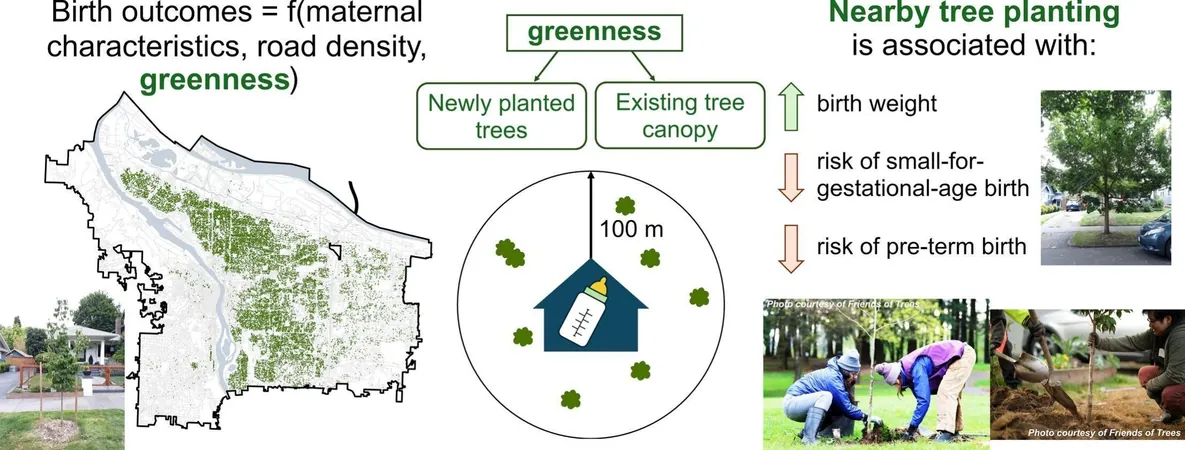
Groundbreaking Study Uncovers Connection Between Shingles Vaccine and Reduced Dementia Risk!
2025-04-02
Author: John Tan
Groundbreaking Study Uncovers Connection Between Shingles Vaccine and Reduced Dementia Risk!
A recent and compelling study led by researchers at Stanford Medicine has spotlighted the potential link between the shingles vaccine and a decreased risk of dementia, highlighting a unique public health initiative in Wales. As reported on April 2 in the journal Nature, it was found that older adults who received the shingles vaccine were a staggering 20% less likely to develop dementia over a seven-year period compared to those who did not get vaccinated.
Viral Causes of Dementia?
This groundbreaking research supports the growing hypothesis that viral infections impacting the nervous system might increase the likelihood of developing dementia. With dementia already affecting over 55 million people globally and approximately 10 million new cases diagnosed each year, this discovery opens the door to preventive measures that could be on the horizon.
Understanding Shingles and Its Impact
Shingles, caused by the reactivation of the varicella-zoster virus (the same virus responsible for chickenpox), can cause severe discomfort and complications, especially in older adults. Once someone has chickenpox, the virus remains dormant in the body, and factors such as aging or weakened immunity can trigger a painful shingles outbreak.
For decades, dementia research primarily centered on the presence of amyloid plaques and neurofibrillary tangles, characteristic of Alzheimer’s disease—the most prevalent type of dementia. However, with limited advancements in both treatment and prevention, researchers are now probing other possible contributing factors, including the role of viral infections.
A Game-Changing Approach
Previous studies linking the shingles vaccine to lower dementia rates were often clouded by bias: vaccinated individuals are typically more health-conscious and may practice healthier lifestyles, complicating efforts to ascertain causation.
However, the Welsh vaccination program, which began in September 2013, created a remarkable scenario for a “natural experiment.” The eligibility criteria restricted the vaccine to those who turned 79 on a specific date, allowing the researchers to compare individuals just before and after this cutoff.
In a sample comprising over 280,000 older adults aged 71 to 88, it became clear—those who were vaccine-eligible displayed notably lower dementia rates.
Key Findings and Implications
Researchers observed that those vaccinated against shingles had a 37% lower incidence of shingles itself during the study period, consistent with findings from clinical trials. But even more striking was that by 2020, among those aged 86 and 87, vaccinated individuals were still 20% less likely to develop dementia than their unvaccinated counterparts.
"The implications of these findings are tremendous," stated Dr. Pascal Geldsetzer, leading author of the study. "This provides robust evidence for the protective effects of vaccination against neurodegeneration."
A Closer Look at Gender Differences
Notably, women appeared to benefit more from the vaccination in terms of dementia protection than men—potentially due to sex differences in immune responses. Women often exhibit stronger antibody reactions to vaccines, which might explain the discrepancy.
Looking Ahead: Future Possibilities
One critical question remains: could newer vaccines, specifically those engineered to target viral proteins more effectively, yield similar or greater protective effects against dementia? Dr. Geldsetzer hopes that this research will harness renewed funding and attention to explore these pathways, which could lead to innovative treatments or preventive strategies in the future.
Intriguingly, the findings of the Welsh study have been corroborated by similar analyses in countries like England, Australia, New Zealand, and Canada, indicating a global trend. As a next step, the research team aspires to conduct a controlled randomized trial to further establish cause-and-effect relationships.
Understanding the potential for vaccines to do more than prevent viral infections could revolutionize our approach to dementia prevention. As Dr. Geldsetzer aptly points out, "Investing in this line of research could lead us to unprecedented breakthroughs."
As the world grapples with the rising tide of dementia diagnoses, this study strengthens the case for considering widespread vaccination not only as a public health measure but as a viable strategy for protecting cognitive health. Don’t miss out on possible future developments—could a simple vaccine offer hope against dementia? Stay tuned for updates!






 Brasil (PT)
Brasil (PT)
 Canada (EN)
Canada (EN)
 Chile (ES)
Chile (ES)
 Česko (CS)
Česko (CS)
 대한민국 (KO)
대한민국 (KO)
 España (ES)
España (ES)
 France (FR)
France (FR)
 Hong Kong (EN)
Hong Kong (EN)
 Italia (IT)
Italia (IT)
 日本 (JA)
日本 (JA)
 Magyarország (HU)
Magyarország (HU)
 Norge (NO)
Norge (NO)
 Polska (PL)
Polska (PL)
 Schweiz (DE)
Schweiz (DE)
 Singapore (EN)
Singapore (EN)
 Sverige (SV)
Sverige (SV)
 Suomi (FI)
Suomi (FI)
 Türkiye (TR)
Türkiye (TR)
 الإمارات العربية المتحدة (AR)
الإمارات العربية المتحدة (AR)